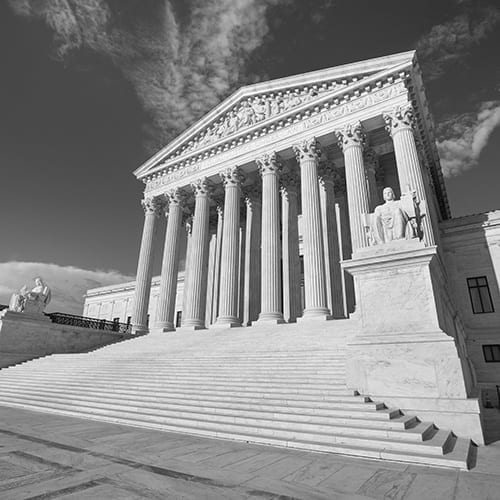By Daniel Moralí
Research Associate
Center for Health and Biosciences, Baker Institute
The U.S. Supreme Court’s ruling to overturn the landmark 1973 decision Roe v. Wade, foretold earlier this year by Politico’s dissemination of a draft decision, revokes not only women’s autonomy over their own bodies but also access to life-saving interventions and, overall, threatens individual rights in the United States. State legislatures now have vast authority over whether, when, how and why a woman can interrupt her pregnancy, her own interests notwithstanding, with problematic repercussions for all individuals’ rights. For one, the revocation of protections to the private sphere jeopardizes individual freedoms to choose a partner and use contraception. No matter the cause, women suffering a miscarriage will have to worry about being regarded as criminally liable, the burden on them to prove themselves innocent. And removing the protection Roe v. Wade granted against being compelled to save any human life guts safeguards against coercion to undergo a blood or organ donation. The subordination of the individual to the preservation of any “human life” compromises everyone’s autonomy.
Patients counting on biomedical interventions and research unrelated to abortion are also expected to suffer under the state laws being enacted or entering into force following the overturn of Roe v. Wade. These laws will stymie fertility treatments using in vitro fertilization (IVF) and preimplantation genetic testing (PGT) for severe hereditary conditions. In addition, they will further hamper research into the early stages of human development and the subsequent development of interventions, including treatments for hereditary conditions and tissue regeneration.
In the recently published paper “Can we do that here?”, science and technology policy fellow Kirstin Matthews and I studied the impact of existing federal and state legislation in the U.S. on human embryo research, as well as research using human embryonic stem cells and embryoids (early-stage stem cell models of human development). Unlike other nations that heavily invest in research and development, U.S. legislation of research related to human development is governed by a patchwork of state-level laws rather than national standards. By and large, this legislation in the U.S. has followed individual scientific developments that captured the attention of legislators and the public. Following the birth of Dolly, the first mammal ever cloned, in 1996, a cohort of laws were enacted prohibiting human cloning, while another set of laws to regulate human embryonic stem cells followed President Bush’s nationally televised address on the topic in 2001. With the overturn of Roe v. Wade, legislation protecting abortion in some states and further prohibiting tampering with human embryos in others will add a new batch of statutes to consider. Unlike with earlier biomedical research restrictions, however, these new regulations will not just circumscribe biomedical research. State laws targeting abortion will govern a much broader range of activities and potentially expose both patients and doctors to prosecution for interventions performed out-of-state. This liability could also extend to scientists that work or collaborate with others in states where the research is proscribed by sweeping anti-abortion regulations.
U.S. federal legislation only regulates post-implantation embryo research and federal funding (but not state or private) for human embryo research through the Dickey-Wicker Amendment. As a result, the National Institutes of Health (NIH), which traditionally provides guidelines for biomedical research, considers human embryo research outside of its jurisdiction, and in the case of embryoid-based research, evaluates grant submissions on a case-by-case basis. Thus, U.S. early human development research overall lacks consistent guidelines at a national level; requires facilities and materials that have not been funded using federal monies; is legislated differently from one state to another; is restricted by laws that only partially cover this type of research; and is self-regulated by scientists and local review boards. The medley of state laws creates a situation where one state actively promotes research that is outlawed in another. And in between, there’s a lot of gray area.
Absent a federal framework of uniform research standards or a national authority guiding and overseeing the research, U.S. research of early human development is self-regulated by scientists and under local or state oversight. This convoluted landscape risks bad actors taking advantage and conducting questionable work, and loses efficiency that could be gained through systematic funding, coordination, and regulation.
While national guidance for research into early stages of human development is much needed, it is unlikely to be developed considering the controversial nature of the research often linked to abortion debates. Unfortunately, the overturn of Roe v. Wade erodes any attempt to mediate the underlying tension between individuals’ opinions and desires — the moral status of the embryo to some pitted against patients’ anxieties, despair and hope for advances related to infertility and treatment of severe diseases. Instead, it entrenches conservative policies and invites additional state laws thwarting human development research, biomedical treatments, and women’s and individual rights throughout.
